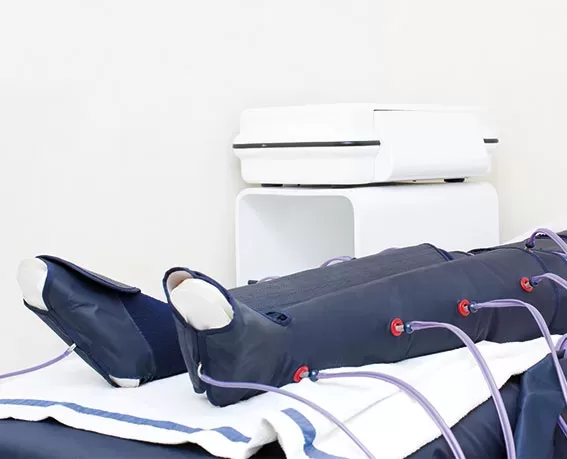Trimedical Dimagrimento
Ritrova il tuo benessere, la tua salute, la tua forma migliore.

Non aspettare, inizia a dimagrire adesso. Il futuro te ne sarà grato.
Trimedical è promotore di stili di vita corretti ed attivi anche nell’ottica della prevenzione di patologie croniche e metaboliche:
per questo è stato introdotto il progetto per il dimagrimento, caratterizzato dalla velocità del risultato e l’approccio integrato dei membri del nostro team.
Pensato per perdere peso e per la gestione dei disturbi del metabolismo, un gruppo di professionisti ti guiderà passo a passo per raggiungere il tuo obiettivo.

Anamnesi
corporea

Trattamenti bruciagrassi

Elettromiostimolazione funzionale
Un allenamento innovativo con le nostre tute EMS!
20 minuti, 300 muscoli coinvolti, più di 500 calorie bruciate sotto la supervisione costante del nostro chinesiologo e massofisioterapista.

Questa è l'intestazione
Lorem ipsum dolor sit amet, consectetur adipiscing elit. Ut elit tellus, luctus nec ullamcorper mattis, pulvinar dapibus leo.

Anamnesi corporea
Eseguita da un fisioterapista osteopata, fondamentale per impostare il percorso motorio ed evidenziare eventuali controindicazioni al percorso.

Trattamenti bruciagrassi
Per accelerare il processo di lipolisi (eliminazione del grasso viscerale in eccesso), oltre che migliorare la qualità estetica della pelle agendo sulla sua elasticità.

ElettroMioStimolazione Funzionale
Questo programma specifico permette di attivare il metabolismo in massimo 20 minuti di esercizi, sotto la supervisione costante del nostro chinesiologo massofisioterapista.
Anamnesi corporea con 1° valutazione
Un’ora di anamnesi personalizzata è il primo passo per cominciare qualsiasi percorso. Analizzeremo il tuo stile di vita e discuteremo della tua alimentazione. Fondamentali risultano l’analisi con la bioimpedenziometria (BIA), per conoscere la tua composizione corporea e le lastre termografiche, sistema innovativo per rilevare in modo rapido, indolore e non invasivo i vari stadi della cellulite e dei pannicoli adiposi. In seguito il nostro team si unirà per creare il miglior percorso ed avere il miglior risultato.

Trattamenti di dimagrimento, rimodellamento, bruciagrassi avanzati
Lipolaser
È un trattamento estetico considerato come un’alternativa alla liposuzione, usato per eliminare l’adipe localizzato in eccesso tramite un raggio laser al diodo a bassa frequenza, dove già dalla prima seduta è possibile perdere dai 2 ai 4 centimetri a zona trattata.
Le zone trattabili sono addome, cosce, fianchi, braccia, schiena. Indolore e non invasivo.


Pressoterapia con infrarossi
Trattamento che attraverso la stimolazione meccanica di diverse aree del corpo aiuta a migliorare la funzionalità del sistema linfatico e circolatorio.
È consigliato per: cellulite, ritenzione idrica, edemi venosi e linfatici, problemi circolatori, drenaggio post-operatorio, aumentare il metabolismo, defaticare i muscoli, ridurre gonfiore addominale.
Trattamento bruciagrassi e rimodellante
Oltre a sciogliere lo stress e diminuire i dolori del tratto addominale, il massaggio bruciagrassi è l’ideale per togliere centimetri alla pancia e smaltire gli accumuli di cellulite, oltre che rimodellare efficacemente il corpo.


Impacco di fanghi al fieno e argilla
Questo impacco, sfruttando i benefici dell’argilla, delle erbe e fieni contribuisce all’eliminazione delle impurità e delle tossine.
La cute già dopo la prima applicazione acquista una estrema morbidezza, luminosità, compattezza ed elasticità. Agisce rapidamente sugli inestetismi ed imperfezioni cutanee, aiutando nei casi di tensioni e rigidità muscolari, cellulite ed adiposità localizzate e ristagno dei liquidi.
Linfodrenaggio
Ottimo per il riassorbimento e il drenaggio di liquidi in eccesso attraverso la stimolazione di canali linfatici: riduce gonfiore da ritenzione idrica, tonifica i muscoli e allevia il dolore localizzato.


Sauna ad infrarossi
Agisce sul miglioramento della circolazione sanguigna, la disintossicazione del corpo attraverso la sudorazione.
Inoltre, l’esposizione agli infrarossi facilita ed agevola la guarigione di disturbi legati alle articolazioni (artriti, artrosi), ai tendini (tendiniti), ai muscoli (tensioni, contratture ecc)
accorciando così il tempo di guarigione e risultando nel contempo un ottimo analgesico naturale.
Bendaggio ai sali marini
Trattamento che si effettua solitamente su gambe e addome con l’uso di bende in tessuto imbevute in una soluzione composta da acqua e sale.
Trattamento ideale per soggetti con presenza di ritenzione idrica, pelle a buccia d’arancia e gonfiore alle gambe.

Elettromiostimolazione funzionale

Elettrostimolazione funzionale: bastano 20 minuti di allenamento!
La scienza al servizio del fitness!
Un allenamento innovativo che porta il tuo benessere psicofisico ad un livello successivo.
L’elettrostimolazione muscolare scolpisce il tuo corpo, accelera il metabolismo e migliora la tua postura in pochissimo tempo.
In soli 20 minuti infatti, ottieni risultati che avresti in 1 ora e mezza di palestra!
